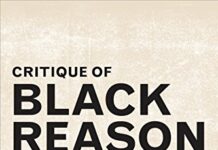
Ebook Info
- Published: 2001
- Number of pages: 285 pages
- Format: PDF
- File Size: 2.50 MB
- Authors: Achille Mbembe
Description
Achille Mbembe is one of the most brilliant theorists of postcolonial studies writing today. In On the Postcolony he profoundly renews our understanding of power and subjectivity in Africa. In a series of provocative essays, Mbembe contests diehard Africanist and nativist perspectives as well as some of the key assumptions of postcolonial theory. This thought-provoking and groundbreaking collection of essays—his first book to be published in English—develops and extends debates first ignited by his well-known 1992 article “Provisional Notes on the Postcolony,” in which he developed his notion of the “banality of power” in contemporary Africa. Mbembe reinterprets the meanings of death, utopia, and the divine libido as part of the new theoretical perspectives he offers on the constitution of power. He works with the complex registers of bodily subjectivity — violence, wonder, and laughter — to profoundly contest categories of oppression and resistance, autonomy and subjection, and state and civil society that marked the social theory of the late twentieth century. This provocative book will surely attract attention with its signal contribution to the rich interdisciplinary arena of scholarship on colonial and postcolonial discourse, history, anthropology, philosophy, political science, psychoanalysis, and literary criticism.
User’s Reviews
Reviews from Amazon users which were colected at the time this book was published on the website:
⭐One of the best books I’ve ever read. A fundamental work.
⭐i will begin by saying that Achille Mbembe is now my favorite author/theorist! it is really a shame that no one has reviewed this book yet! it is simply an amazing and absolutely necessary book to read for anyone who wants to consider themselves knowledgable of african politics, culture, economics or contemporary history.there is so much of value in this book that i don’t have the time to go into here so i will just say a few things. first, this book avoids (or really counters) the extremism, a-historicism, and reductionism of theoretical approaches that purport to know africa and/or africans and their politics and cultures. while accounting for the insights of various “post-” critiques, Mbembe does not allow their common ahistoricism to detract from the solid historical and material (not historical materialist or marxist) groundings present in all aspects of his research. similarly, Mbembe does not simply adopt western theoretical models (marxisms, postcolonial studies, ethnic studies, foulcauldian influences, deconstruction, etc.) and apply them willy-nilly to african nations (post-colonies). he grabs what is insightful from any relevant theory, lays the historical and contemporary groundings which allow any theoretical modeling to proceed, and then shows the distinctness of the african situations and how the theories that he does borrow from must be altered in order to have relevance to african postcolonies (he also shows how the simple application of these western theories and models actually produce greater problems when applied without first particularizing them to african situations). implicit in this endeavor is the creation of entirely new theories and models of power and their rationalities. Mbembe does all this with such hard hitting honesty that it was actually hard to hear at times. there is no deluded, simplistic utopian visions in Mbembe’s positions – the workers revolution (as concieved in some western marxist theories) will not simply deliver us to the promise land. the forms of liberation that africans engage must be developed from their various positionalities and subjectivities and not imported from some western notion of what revolution entails. it is the africans who will teach us (westerners) what libratory practice will look like, not the other way around.i would liken this book to a synthesis between the insights of Fanon’s “Wretched of the Earth”, Said’s “Orientalism”, Wallerstein’s “The Modern Worldsystem, 3 vols.”, Foucault’s “Discipline and Punish”, Polanyi’s “The Great Transformation” and a few other very important texts while utterly surpassing each and everyone of them and applying every innovation and insight he (Mbembe) has to African postcolonies.there is so much more to this book that i have not mentioned for lack of time. i will only say one thing more: this book is an absolutely necessary read and i desperately hope that you take the time to read this enormously dense and enlightening (yet only 240 page long) book.
⭐good
⭐The delivery was fast and the book was in perfect condition.
Keywords
Free Download On the Postcolony (Studies on the History of Society and Culture Book 41) 1st Edition in PDF format
On the Postcolony (Studies on the History of Society and Culture Book 41) 1st Edition PDF Free Download
Download On the Postcolony (Studies on the History of Society and Culture Book 41) 1st Edition 2001 PDF Free
On the Postcolony (Studies on the History of Society and Culture Book 41) 1st Edition 2001 PDF Free Download
Download On the Postcolony (Studies on the History of Society and Culture Book 41) 1st Edition PDF
Free Download Ebook On the Postcolony (Studies on the History of Society and Culture Book 41) 1st Edition

